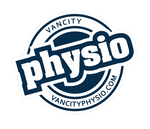Temporomandibular joint (TMJ) disorders are conditions affecting the jaw joint and surrounding muscles, often leading to pain, stiffness, and difficulty in jaw movement. TMJ disorders can also manifest as associated symptoms such as neck pain, headaches, and facial discomfort. Neck pain, in particular, is a common comorbidity with TMJ disorders, as the muscles and joints of the jaw and neck are intricately connected. Physiotherapy, with its focus on improving mobility, strength, and function, offers effective interventions to manage TMJ and neck pain comprehensively.
Understanding TMJ and Neck Pain
TMJ Disorders:
TMJ disorders encompass a range of conditions affecting the temporomandibular joint, including inflammation, muscle dysfunction, disc displacement, and arthritis. Symptoms may include jaw pain, clicking or popping sounds, limited jaw movement, and muscle stiffness.
Neck Pain:
Neck pain associated with TMJ disorders can result from muscle tension, referred pain, or altered mechanics due to jaw dysfunction. It often presents as stiffness, soreness, and restricted movement in the neck and shoulders.
How Physiotherapy Helps
Assessment and Diagnosis:
A physiotherapist conducts a thorough assessment to identify the underlying causes of TMJ and neck pain. This may involve evaluating jaw movement, muscle strength, posture, and assessing for any contributing factors such as poor ergonomics or stress.
Manual techniques such as soft tissue massage, joint mobilizations, and trigger point release are employed to alleviate muscle tension, improve joint mobility, and reduce pain in both the TMJ and neck region.
Tailored exercise programs are designed to address muscle imbalances, strengthen weak muscles, and improve posture. Specific exercises may target the jaw, neck, shoulders, and upper back to enhance stability and promote optimal alignment.
Jaw Rehabilitation:
Physiotherapy incorporates techniques to retrain jaw muscles and improve jaw movement. This may include exercises to enhance jaw opening, closing, and lateral movements, as well as techniques to correct faulty jaw mechanics.
Postural Correction:
Addressing postural abnormalities is crucial in managing both TMJ and neck pain. Physiotherapy interventions aim to correct posture, alleviate muscle strain, and promote optimal alignment to reduce pain and improve function.
Education and Self-Management Strategies:
Physiotherapists educate patients about lifestyle modifications, ergonomics, and self-care strategies to manage symptoms effectively. This may involve advice on stress management, relaxation techniques, and home exercises to promote long-term recovery and prevent recurrence.
Physiotherapy plays a vital role in the management of TMJ and neck pain by addressing the underlying causes, improving mobility, and enhancing overall function. Through a combination of manual therapy, exercise prescription, and patient education, physiotherapists empower individuals to take an active role in their recovery and achieve lasting relief from TMJ and neck pain. If you're experiencing TMJ or neck pain, consulting a physiotherapist at Vancity Physio can be an important step towards regaining comfort and function in your daily life.


